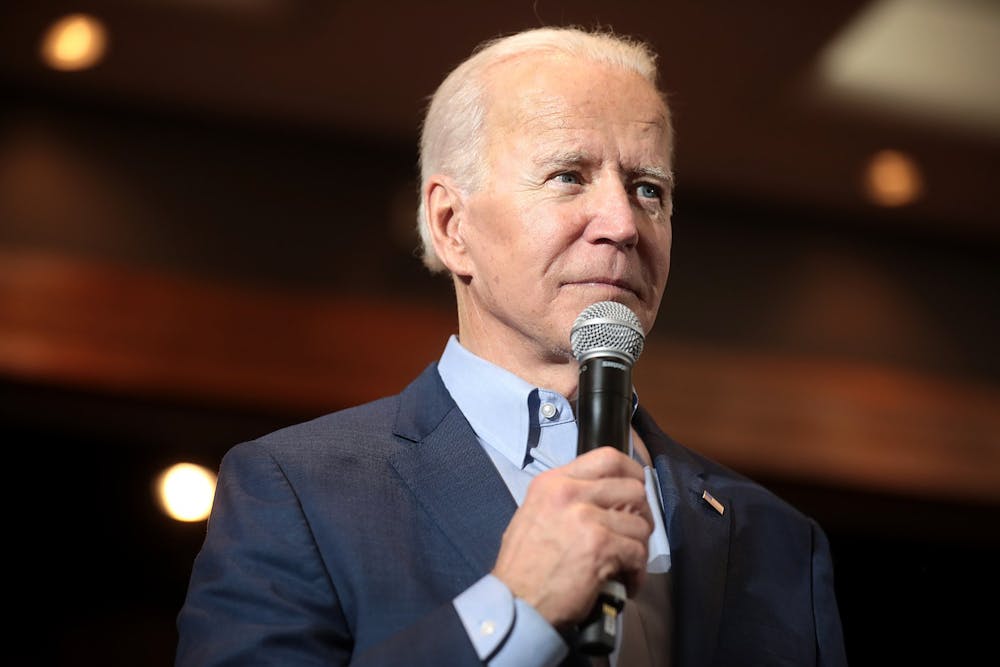Last month, the Biden administration announced its decision to withdraw military aid for offensive military operations led by Saudi Arabia in Yemen. This choice reverses a policy started by the Obama administration and bolstered by the Trump administration. Timothy Lenderking was appointed special envoy to Yemen after the announcement.
These actions signal a strong departure from the Trump administration’s response to the Yemen crisis. In 2017, the U.S. negotiated a $110 billion arms deal with Saudi Arabia. In 2019, the administration approved an $8.1 billion emergency arms deal with the United Arab Emirates (UAE). These actions signaled enthusiasm in expanding the U.S.’s arms industry — despite widespread evidence of the Saudi-Emirati coalition using American arms to target civilian areas, which had exacerbated one of the world’s worst humanitarian crises.
Since 2014, Yemen has been involved in a brutal proxy war between the Iran-backed Houthi rebels and the Saudi-led coalition. During the first five years of conflict, Saudi Arabia became the world’s largest arms importer, increasing major imports by 130%. The U.S. provided 73% of Saudi Arabia’s total arms imports, and the aforementioned nation became the U.S.’s most valued customer.
In the five years before the war, the U.S. sold $3 billion worth of arms to Riyadh; between 2015 and 2020, this figure increased to $64.1 billion. Sales to other actors in the war, such as the UAE, also rose in this five-year time period. What is troubling is that these sales were made under the premise that the Saudi-Emirati coalition would swiftly end the war in Yemen with such liberal American benefaction.
Former Secretary of State Mike Pompeo was convinced that the Saudis could defeat the Iran-backed Houthi rebels in Yemen, thereby deterring Iranian influence in the region. But if the last five years of the crisis tell us anything, it’s that selling arms like candy to a volatile entity with serial human rights abuses will result in an escalation of a crisis, and ultimately a loss of American moral authority.
The U.S.’s Arms Export Control Act of 1976 outlines the need for proper risk-assessment before any arms transaction so that these weapons may only be used for legitimate purposes of self-defense. This risk-assessment gives consideration to whether a transaction "would contribute to an arms race, aid in the development of weapons of mass destruction, support international terrorism, increase the possibility of outbreak or escalation of conflict, or prejudice the development of bilateral or multilateral arms control or nonproliferation agreements or other arrangements.”
Clearly, U.S. defense policy must do more to honor these guidelines. Since the Bush administration, the U.S. has been selling weapons to increasingly risky nations.
Temporarily freezing arms sales to a serial violator of human rights is just the first step in the right direction. But it is absolutely crucial to limit presidential war-making powers. Currently, any proposed major arms sales are required to have a 30-day congressional review period before its approval. However, a loophole in the Arms Export Control Act bypasses this process. The $8.1 billion deal to the UAE was quickly passed under emergency declaration of Iranian threat despite backlash from both parties in Congress.
It is necessary to increase congressional powers surrounding major arms sales. Increased public debate between multiple political parties will force the administration to provide more rigid justification for any arms transaction. This proofing process may potentially limit some of the high-risk sales that still constitute a large portion of the U.S.’s arms exports.
It is also necessary to hold such perpetrators like Saudi Arabia accountable for their crimes. The Saudi-led coalition is one of the actors complicit in widespread famine, a cholera epidemic and blocking humanitarian aid, all on top of striking civilian areas. A solid rebuke from a global power, such as the U.S., will set a precedent for other allies to follow suit.
The red stripes of the American flag should not be painted with the blood of innocents. The restoration of moral authority must not always be at odds with strategic or fiscal considerations.
Shreya Sriramineni is a freshman from Allentown, Pa. majoring in Physics.





